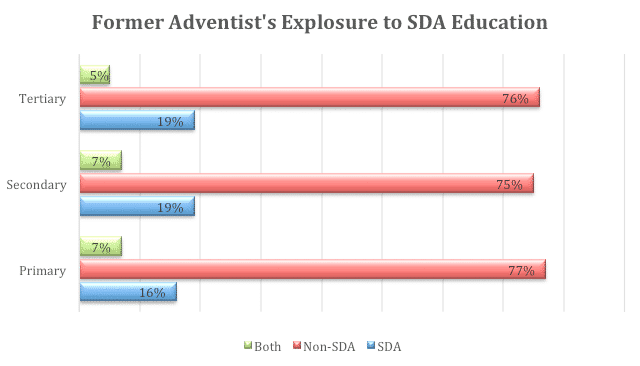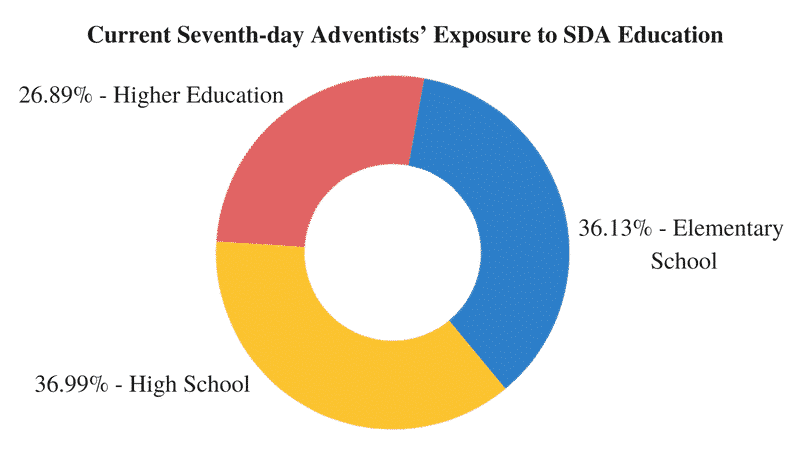Train up a child in the way he should go, and when he is old he will not depart from it.
– Proverbs 22:6 (NKJV)
The great principles of education are unchanged. . . . for they are the principles of the character of God. To aid the student in comprehending these principles, and in entering into that relation with Christ which will make them a controlling power in the life, should be the teacher’s first effort and his constant aim.
(Ellen White, Education, p. 30)
Since the beginning of the Seventh-day Adventist Church, Christ-based education has been held in the utmost regard. The Adventist model of education was designed to educate the entire being – mental, physical, emotional, and spiritual – to promote wholistic learning and, in all areas, to point the student’s eyes back to Jesus.
Because of this focus, a significant number of Adventists are willing to make sacrifices – many of them financial – to ensure that their children are able to receive education at an Adventist institution. They consider the short-term cost worth the payout in the long run. In many countries, non-Adventists recognize the difference in education that students receive at Adventist schools, and choose to enroll their children in these schools despite an affiliation with the Church.
However, are there long-term religious/spiritual benefits for students who receive Adventist education? How does attending an Adventist educational institution impact students’ relationship with the church long-term?
A recent (2013) study conducted for the Office of Archives, Statistics, and Research asked former Adventists if they felt that their time spent in Adventist education had been a factor in their leaving the church. Over three-fourths (78%) of respondents indicated that they did not feel their time spent in Adventist education had contributed to their decision to leave the Church. A small percentage of respondents (15%) indicated that they were unsure if their experiences within the Adventist education system had contributed to their decision to leave, with only 7% indicating they felt like their education had, in fact, contributed to their leaving.
Respondents were also asked about their levels types of educational institutions they attended for primary, secondary, and tertiary education.
- The majority of respondents (77%) indicated that they attended a non-SDA primary school, 75% attended a non-SDA secondary school, and 76% attended a non-SDA tertiary school for Bachelor’s-level study.
- A small percentage of respondents (16%) indicated they attended a Seventh-day Adventist primary school, 19% reported that they attended an SDA secondary school, the same percentage (19%) attended an SDA tertiary institution for Bachelor’s-level study.
- Very small percentages (7% or less) reported attending both SDA and non-SDA educational institutions.

Similarly, in 2013, in a separate survey of church members worldwide researchers asked currently active Seventh-day Adventists about levels of Adventist education they had experienced.
- Over one-third (36.13%) of respondents indicated they attended an Adventist elementary school.
- Another third (36.99%) of respondents indicated they attended an Adventist secondary school.
- Slightly over one-fourth (26.89%) indicated they attended an Adventist college or university for higher education.

As you can see, current Church members experienced considerably greater exposure to SDA education on the primary and secondary levels than people who have left the Church. These findings lend support to the concept that Adventist education helps those who experience it to stay connected to the Church over time.
The bottom line is this: people who have left the church are proportionately less likely to have experienced Adventist education than the majority of church members. Adventist education statistically predicts remaining a Seventh-day Adventist. Also, in spite of what some cynics may try to say, there is no correlation between receiving Adventist education and leaving the church; even most of those who have left the church do not see a correlation between the two!
This finding reiterates the importance of Adventist education. Not only does Adventist education develop students wholistically, it works to keep students in tune with their Creator. This relationship appears to not only effect the here and now, but research shows it has life-long positive implications for attendees of Adventist schools and universities.
To see the full report, check out Leaving the Church (Retention Survey, 2013).
Created in collaboration with the Institute of Church Ministry.

